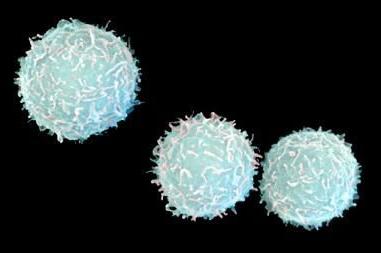For the first time, a clinical blood test (also called a general blood test ) is done for children in the hospital, then the study is carried out during routine medical examinations or before vaccination.
Before analysis
If possible, a general blood test should be taken on an empty stomach, that is, the child should not eat before the procedure. The stomach begins to work intensively after eating. This can lead to the fact that, according to the results of the analysis, the leukocytes will be increased in the child's blood, and the doctor will receive incorrect information about the baby’s health. In polyclinics, the most common rooms where blood is taken are from 8 a.m. to 10 a.m., since it is at this time that the body's internal parameters are the most optimal.
White blood cells - blood cells
White blood cells, capable of absorbing and digesting various microorganisms, thereby fulfilling the function of protection, are white blood cells. In their composition, they contain enzymes that can destroy a foreign protein. Their production, as well as maturation occur in the bone marrow. In some leukocytes, the cytoplasm has a granular structure, they are called granulocytes. There are no other granularities in the cytoplasm; they are called agranulocytes. Granulocytes include neutrophils (segmental and stab), eosinophils, basophils, monocytes, lymphocytes to agranulocytes. Band neutrophils from the number of all white blood cells should normally not exceed 5%, in the case when this figure is greater, we can already talk about the presence of some kind of pathology. This phenomenon is called a stab shift, that is, with it there is a shift to the left side of the leukocyte formula. Eosinophils of the total number of white blood cells should be no more than 4%. If this figure is increased, it means that the child has a foreign protein in the body, which may be characterized by an allergic reaction or the presence of helminths.

Leukocytosis
This term is used when the white blood cells in the blood are elevated. The causes of this phenomenon are determined by the physiological or pathological nature. In the first case, the level of white blood cells rises as a result of physical activity. Within about two hours after eating, the white blood cells may be elevated in the child's blood. Also, their growth is observed after taking a rather hot bath, with emotional stress. That's why a blood test is always taken in the morning, at this time of day the indicators are the most reliable. In the evening, even absolutely healthy children may have elevated white blood cells. In infants and older children, the growth of white blood cells can be caused by some kind of pathology, for example, poisoning, infectious disease, burns, purulent processes, trauma, colds, that is, almost any painful condition. But you should not look for the cause yourself. If, according to the results of the analysis, the white blood cells are elevated in the child's blood, consult a doctor. He will appoint an examination, on the basis of which it will be possible to make the correct diagnosis.
Leukemia
In some cases, white blood cells in a child are elevated due to the fact that he suffers from leukemia, a malignant disease of the hematopoietic system. The presence of this serious disease can be detected already during the first blood test. But, fortunately, leukemia in children is not so common. Usually, an increase in white blood cell count is due to less serious causes.